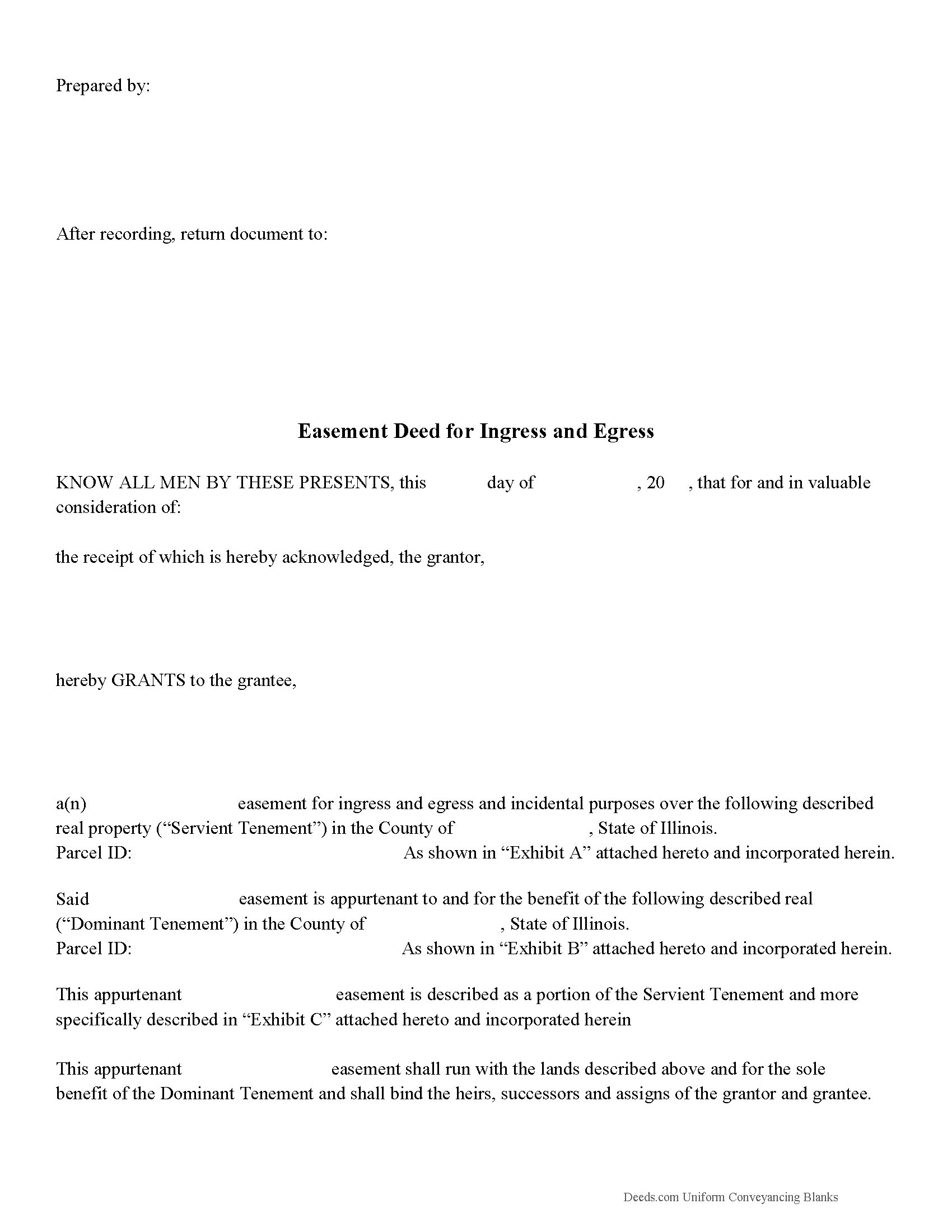Download Illinois Easement Deed Legal Forms

Illinois Easement Deed Overview

An easement is the right to use the land of another for a specific purpose. An easement can exist in any portion of the real estate and can be made by agreement at any time, created by the seller when property is conveyed, or by operation of law. The creation of an easement always involves two separate parties, one of whom is the owner of the land over which the easement runs. Easements can be broken down into two categories: easements appurtenant and easements in gross.
An easement is recorded just like any other property interest in Illinois. This means that an easement deed should be signed and acknowledged by the grantor. If acknowledged in Illinois, acknowledgments can be made before a notary public, United States commissioner, county clerk, or any court, judge, clerk, or deputy clerk of such court. If acknowledgments are taken before a notary public or United States commissioner, the acknowledgment should be attested by his or her official seal. Acknowledgements taken before a judge or clerk of court should be attested by the seal of such court (765 ILCS 5/20). Easement deeds acknowledged outside of Illinois must still comply with the Illinois recording requirements and can be acknowledged before any of the officers listed in 765, 5/20 of the Illinois Compiled Statutes.
Easement deeds can be recorded in the county where the property is located (765 ILCS 5/28). All easement deeds that are authorized to be recorded will take effect and be in force from and after the time the deed is filed for record with the county recorder, and not before, as to all creditors and subsequent purchasers without notice. All such deeds will be void as to all such creditors and subsequent purchasers without notice until they are filed for record (765 ILCS 5/30).
(Illinois Easement Deed Package includes form, guidelines, and completed example)